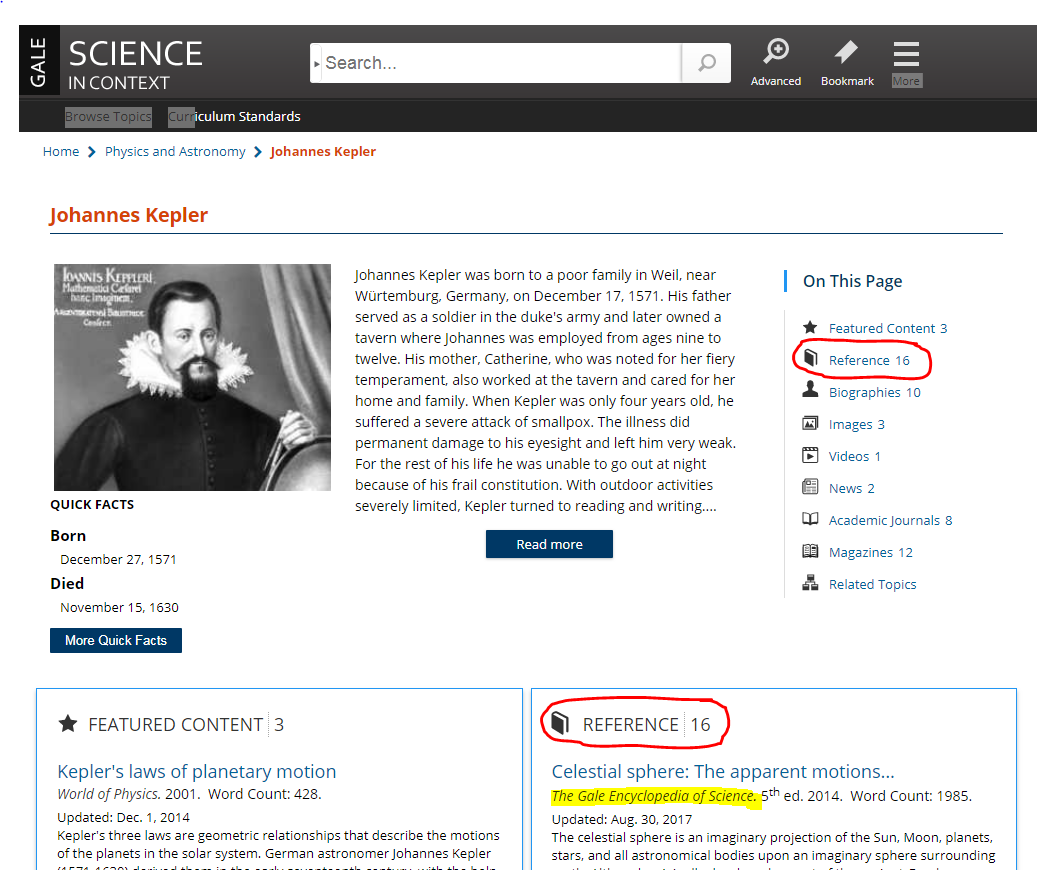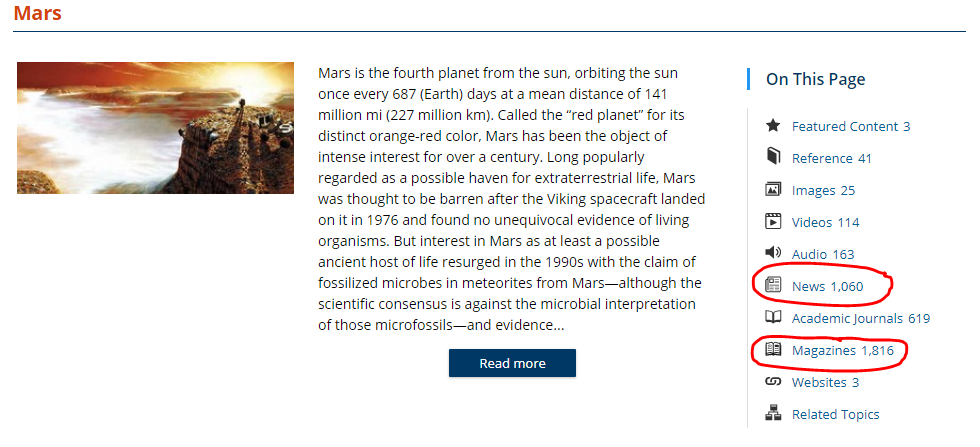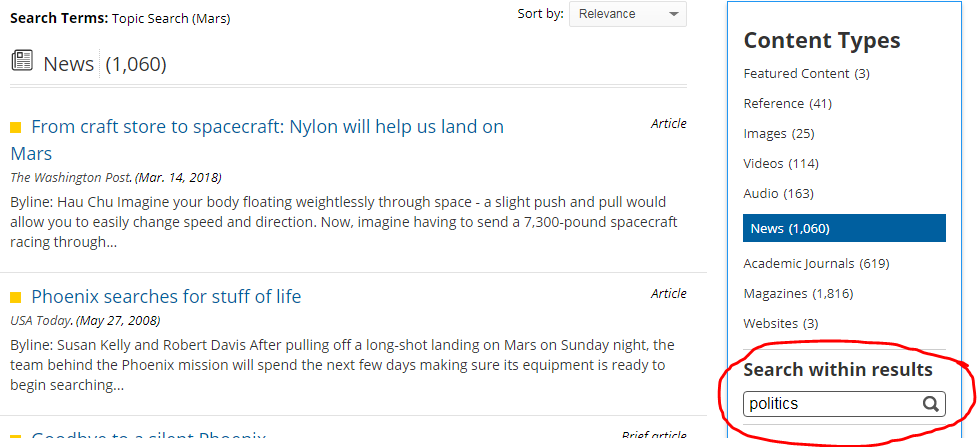 Your task:
Your task:
1. Identify and research a discovery in space science that has been used to
address a problem or issue.
2. Evaluate the impacts through the lens of one or two factors (social,
economic, environmental, political, cultural, ethical, moral). Number of
factors depends on your teacher’s requirement.
3. Justify your personal point of view.
4. Present your research to the class (10 min).
Research Process: Where should I start?
1. Begin by reading background information about the topic. A good place to start is Britannica Encyclopedia and World Book Encyclopedia. The articles are written at the high school level and suggest areas for further research. The information from the articles will help you describe and explain the ways in which science is applied and used to address a specific problem or issue (Criterion D). As you are reading the article, look for information related to the factors in which you will be evaluating.
For example: In the Britannica article “Mars”, the author states that “the crew would also experience psychological pressures from several hundred days in a confined space far from Earth with no other company”. This could provide you with a launching point to further investigate the ethical issues of long term space exploration. In another section, the author also states that “Mars should not be contaminated with terrestrial materials before the potential for indigenous life has been adequately assessed”. Contamination could be a factor related to the environment.
Source: “Mars.” Britannica School, Encyclopædia Britannica, 7 Dec. 2017. school.eb.com/levels/high/article/Mars/110149#54250.toc. Accessed 11 Apr. 2018.
2. Once you have an initial understanding of your topic, move on to more advanced reference sources such as science-specific encyclopedias. You can find these in the “Science in Context“ database.
Other sources to explore:
1. Databases
- Explora: a database that searches all topics; however, use your topic to locate topic-specific information( i.e. “dark matter”).
- Gale in Context: Global Issues: a database similar to Science in Context. Search “Space Exploration” for topics from a global perspective
- CBC Curio: There are many videos related to the impacts of space science here. For full access from home, please email Ms. Conbere for the access code.
2. Science Magazines — search by keyword
- Cosmos
- Popular Science: Click the Menu ≡ button and search here.
- Science: Planetary science information can be found here.
- National Geographic: Click on the appropriate topic.
- Space
- Science and Innovation
- Exploration and Adventure
- Flipster: Offered through the EBSCO for West Vancouver Schools, science magazines can be accessed here. Search by term or magazine type (i.e. in the search bar, type “space science”). Please contact your teacher-librarian for the username and password.
- Press Reader (scroll down): Offered through the West Vancouver Memorial Library, Press Reader searches for your topic through hundreds of magazines. You will need your WVML library barcode to access this site. Should you need a little explanation on how to navigate, please watch this video.
3. Government sites
4. Museums & Collections:
- Smithsonian National Air and Space Museum
- Arizona State University’s Center for Meteorite Studies: Click on “Meteorites” in the middle of the heading to choose from a variety of information about meteorites.
- Canada Aviation and Space Museum. Try the search bar at the top, or navigate through “Collection & Research” just below and left of the search bar.
5. Space News:
- California Academy of Sciences Universe Update
- Science Daily
- The Sun Today: Provides information about our sun’s influence on many factors.
6. Print resources
- At Rockridge: Access our catalog. If you find a book you need, email the teacher-librarian with what you need, and we can scan and email the information to you. Please provide us 24 hours during the week.
- At West Vancouver Memorial Library: Access ebooks and audio books here. You will need your WVML library barcode.
Photo Source: https://www.collater.al/en/good-night-stories-for-rebel-girls/


